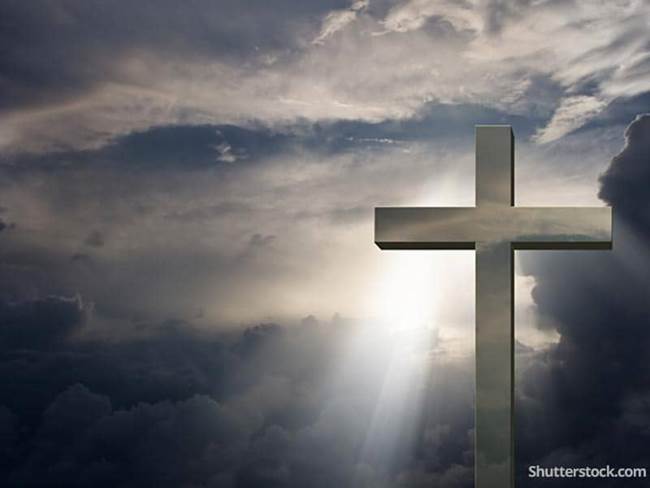
By Noah Lawrence
“Unprecedented” is one of our most frequent words for these challenging times in America. We have witnessed astonishing political turmoil and even violence, reaching a climax during the transfer of power in Washington, and still ongoing in our conflict over understanding what happened this past January.
Amid these hard times, many Americans of diverse faiths have been turning to our most venerable religious texts for solace and guidance. When we do, we find that through the lens of such timeless wisdom, nothing is truly unprecedented. These texts speak to the deepest questions of the human condition, including the fundamental issues at stake in our era’s events. In this way, our classic texts provide a map for the journeys of our times.
In our time of tumultuous politics, we might consider such a moment in the Biblical narratives cherished across the Abrahamic family: the story of Moses and Aaron’s contending with the revolt led by Korah, in Numbers 16. The Korah story is an ethical and spiritual training session. It reveals the way language can conceal self-serving purposes, and the consequences for all of us when such language is combined with force.
As the story opens, the children of Israel are wandering in the wilderness, toward the promised land, and here is what happens (my translation):
And Korah son of Izhar son of Kohath son of Levi took up, and with him Dathan and Abiram sons of Eliab, and On son of Peleth, sons of Reuben. And they rose before Moses, and men from the children of Israel with them, fifty and two hundred: chieftains of the community, those called for convening, men of renown. And they assembled against Moses and against Aaron.
Why are Korah and his allies and supporters doing this? What do they want?
The Bible gives us a clue by showing us who they are and what exactly they are doing. These are people who already have great prestige.
Korah descends from Levi and thus is in the priestly echelon of Israelite society. His three main allies descend from Reuben, the firstborn son of Jacob, and so convention would entitle them to the top political echelon — but the Israelites did not set up their society that way.
Instead, they followed Moses, not because of pedigree, but because he led them in God’s path toward liberation and justice and they trusted his leadership. The Bible describes the other supporters with three titles: “chieftains of the community” — they are prominent; “those called for convening” — they are influential; and “men of renown” — they are famous.
What all these people have in common is that they already have some power or think they are entitled to it. What they want, the Bible is suggesting, is not just some power but all of it— not just influential positions but the very-top ones.
We see this raw self-interest unfurl in what Korah and his people do. “And they rose before Moses”: this Hebrew verb root, qam, is the same one from, e.g., the verse, “And Cain rose toward Abel his brother and killed him” — no ordinary discussion of differences. “Fifty and two hundred” people: imagine a debate stage where one candidate brings 250 people with him — again, not something one does if coming in respect and peace. Finally: “And they assembled against Moses and against Aaron.”
The situation is escalating: first Korah and his people rose before (lifnei) Moses — now, they assemble against (al, literally “upon”) Moses and Aaron. Korah and his allies are trying to make Moses and Aaron an offer they can’t refuse. They are coming to topple the people’s legitimate leaders. And they are ready to physically fight them.
Then Korah and his allies say to Moses and Aaron:
“You have too much! For the whole entire community is holy, and among them is the Lord, and for what reason do you raise yourselves up over the assembly of the Lord?”
In their rhetoric, Korah and his allies are, in today’s parlance, populist. This is why the Bible shows us their true motivations first, so that when we hear their rhetoric, we can see through it, as a front, as self-serving.
Even their rhetoric shows telltale signs of their real purposes. When Korah and his allies use not one but two adjectives for the people (“the whole entire community”) they are exaggerating the point because they do not actually mean it; they doth protest too much.
When they describe Moses and Aaron as “raising themselves up over” people, Korah and his allies are projecting — that is precisely what they are doing. And when they assert that somehow Moses and Aaron are against God Himself, they let slip their real aim of simply attacking Moses and Aaron.
In truth, Moses is the one to whom justice and human dignity are genuinely important. We see this earlier in the Five Books of Moses when his father-in-law Jethro proposes that Moses create lower-court judges and delegate power to them, and Moses readily agrees (Exodus 18).
We see it just a few chapters before the Korah story, when two people start prophesying without authorization, and Moses, instead of feeling challenged by it, says, “If only all the Lord’s people were prophets!” (Numbers 11). And we see Moses’s devotion to God’s vision of human dignity in the commandments that Moses hands down: “Love your fellow as yourself”; “Do not oppress a stranger…for you were strangers in the land of Egypt”; “Justice, justice, shall you pursue” (Leviticus 19:18, Exodus 23:9, Deuteronomy 16:20).
By contrast, Korah and his allies want power not for justice’s sake but for their own sake. They will use whatever arguments will get them power most expediently. And they have already convinced hundreds to join them.
The fate of Korah and those with him is as gripping as any blockbuster movie:
And the ground that was under them split apart. And the earth opened its mouth and swallowed them…And they went down…alive to the netherworld. And the earth covered back over them.
The scene is best understood as a literary image symbolizing the punishment that fits this crime. By seeking power for their own raw self-interest; by exploiting language to deceive people and incite them; by threatening violence; and by dividing the people — Korah and his allies sundered the ground that underlies all of society. And that same hole in society’s foundations is what swallows up Korah and his allies.
The Korah story gives all of us training in seeing through language that conceals its self-serving purposes, in eschewing and stopping these stratagems, and in knowing what the consequences can be when we do not. And this training could not be more timely.
We have been living through years of language and power deployed in this self-serving, domineering way, including from the highest levels of authority. We have seen this dark trend escalate, culminating in the events of January 6, 2021: a day when a hole opened up in the foundations of our democracy analogous to the mouth of the earth that opened up in the wilderness of the Israelites.
The images stay in the mind: masses of fellow Americans breaking through windows and doors of the United States Capitol. They assaulted police officers defending it. Some rioters had zip-tie handcuffs. Others erected gallows. They surged by force into the halls, the offices and even the Senate Chamber at the heart of the people’s house. American senators and representatives had to evacuate to take shelter from fellow Americans.
The rioters’ express goal was to stop what President Reagan in his First Inaugural Address called “nothing less than a miracle”: the peaceful transfer of power. Our nation’s election was verified as free and fair by American officials at every level, including the numerous courts where President Trump had sued, yet those who stormed the Capitol called these results a “steal.” Trump himself had just addressed them, with calls like, “if you don’t fight like hell, you’re not going to have a country anymore” — making Trump “practically and morally responsible for provoking the events of the day,” as Senate Minority Leader Mitch McConnell said at the time.
In these events, we see the formula of Korah. The goal on January 6 was to block the legitimate leaders of the people from exercising their offices, in favor of one man who wanted that power for himself. The method was to storm the leadership en masse, and to wield mass violence. Yet the rhetoric of the attempt was populist. It used a call to “stop the steal” and an appeal to the basic right “to have a country anymore” to describe the complete opposite of these things: seizing power from the people’s leadership.
Now, there is a growing movement to whitewash the story of January 6 — most significantly in the Senate vote rejecting a commission of inquiry into what happened that day. This whitewashing is a variation on the theme of rhetoric that conceals its danger to the public for self-serving purposes. It broadcasts that what happened on January 6 was not a danger to be taken seriously: for example, to be investigated seriously.
What is needed, as in the Bible’s candid account of Korah, is to come together in honesty and accountability about this attempt to use force to stop the transfer of power according to the American people’s choice and the Constitution. Otherwise, we have no guarantee that it will not happen again — and next time, perhaps, succeed.
“If the Republican Party, as currently constituted, takes back the House and Senate next year…and if a Democrat wins the presidency in 2024, it doesn’t seem likely that Congress will certify the victory. And then the four horsemen will most certainly ride,” Jeffrey Goldberg, Editor-in-Chief of The Atlantic, wrote in a recent newsletter. “America needs many things right now, including an actual conservative party, one committed to the rule of law and not to the autocratic inclinations of its defeated leader.”
Unless we engage together in this candor and accountability, and come to a national consensus never to attempt such a thing again, this open hole in the foundations of our democracy will not close back up, but will remain a source of dishonesty, instability, and concrete danger.
The Korah story gives us the tools we need and the questions we need to ask to deal with this situation. The stakes truly could not be more extraordinary — and yet on a fundamental level the questions we must ask of our leaders are the same ones that pertain each time we encounter another person: Does this person mean what they say? Do they genuinely care about my and others’ well-being? Do they act on that care, even if they are imperfect as we all are? Or: Are they concealing that they are only looking out for themselves? Is this someone who is willing to harm others to get what they want? In sum: Does this person sound more like Moses or more like Korah? Can I trust this person?
Ultimately, the Bible leaves us with a cause for optimism — in the fact that this story centers around not only Korah, but also Moses. And indeed, after the Korah story, the children of Israel continue to follow Moses and Aaron through the wilderness. That is precisely how they get to the promised land. May their journey then guide us in together coming closer to a promised land now.














